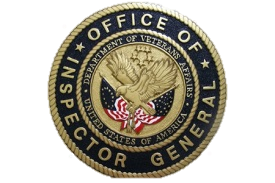OIG for Chiropractic
Everyone needs a little compliance knowledge
And some of us need a lot. The government has indicated that healthcare providers must demonstrate due diligence in showing they are doing the right thing. What does that look like? It could be a lot of things, but the overarching compliance necessities of a practice, start here.
The Office of Inspector General (OIG) of the Department of Health and Human Services (HHS) believes a comprehensive compliance program provides a mechanism that addresses the public and private sectors’ mutual goals of reducing fraud and abuse; enhancing health care provider operational functions; improving the quality of health care services; and reducing the cost of health care. Thus, in 2000, guidance was provided to assist physician and small group practices with compiling a voluntary compliance program. In 2010, as part of the Patient Protection and Affordable Care Act (PPACA), additional compliance guidelines were put forth indicating that practices must have a compliance program in place. That was further clarified in 2014 and, even though they have not set forth a date by which the programs must be put into place, the statute reads:
‘‘(7) COMPLIANCE PROGRAMS.—‘‘(A) IN GENERAL.—On or after the date of implementation, as determined by the Secretary under subparagraph (C), a provider of medical or other items or services or supplier within a particular industry sector or category shall, as a condition of enrollment in the program under this title, title XIX, or title XXI, establish a compliance program that contains the core elements established under subparagraph (B) with respect to that provider or supplier and industry or category.
It is important to keep in mind that if your practice or other health care organization is a participating provider and accepts Medicare Managed Care (Part C Plans) you are already required to have implemented an effective compliance program. Pursuant to 42 C.F.R. §§ 422.503(b)(4)(vi), 423.504(b)(4)(vi), and as incorporated into Chapter 21, Section 30 of the “Medicare Managed Care Manual”:
All sponsors are required to adopt and implement an effective compliance program, which must include measures to prevent, detect and correct Part C or D program noncompliance as well as FWA. The compliance program must, at a minimum, include the following core requirements: 1. Written Policies, Procedures and Standards of Conduct; 2. A Compliance Officer; 3. Effective Training and Education; 4. Effective Lines of Communication; 5. Well Publicized Disciplinary Standards; 6. Effective System for Routine Monitoring and Identification of Compliance Risks; and 7. Procedures and System for Prompt Response to Compliance Issues.
As a result of these rules, all providers accepting Medicare Managed Care are already obligated to have implemented an effective compliance program. In addition to Medicare Managed Care, many of the providers now participating in state Medicaid program must have an effective compliance program in place. We’ve even noticed some private payors incorporating a requirement that providers implement a compliance plan to participate in their program.
Having a compliance program is just good business. Reducing exposure to risk and liability is one of the main reasons to implement and maintain a proper compliance program. If a practice implements and follows an active compliance program, it demonstrates that the practice has made reasonable efforts to avoid and detect misbehavior. It also shows regulating agencies or payors that the intent to commit health care fraud was not present. If offenses or errors are found, but a practice can establish that there was no intent to commit fraud, as evidenced by their compliance plan, penalties could be minimized.


Best resources online or in person. Real humans who can answer real questions in an ever-changing environment.





